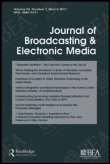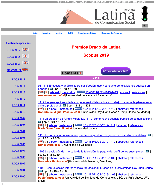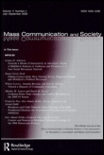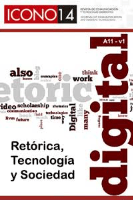
Revista Internacional de Comunicacion y Desarrollo
Scope & Guideline
Cultivating Knowledge for Transformative Practices
Introduction
Aims and Scopes
- Communication and Development:
Explores the role of communication in fostering social change and development, emphasizing participatory communication strategies and the impact of media on community engagement. - Political Economy of Communication:
Analyzes the influence of economic structures on communication practices, investigating how power dynamics shape media landscapes and cultural production in Latin America. - Cultural Studies and Representation:
Examines the representation of marginalized groups in media and culture, focusing on intersectionalities such as gender, ethnicity, and class, and their implications for social justice. - Environmental Communication:
Investigates the interplay between communication and environmental issues, promoting discourse on sustainability, climate change, and ecological narratives in Latin America. - Disinformation and Media Literacy:
Addresses the challenges posed by disinformation in the digital age, advocating for media literacy and critical engagement with information sources as a means of empowerment.
Trending and Emerging
- Digital Competence and Education:
A growing emphasis on the intersection of digital skills and educational challenges highlights the importance of equipping future generations to navigate the complexities of the digital age. - Migration and Communication:
The exploration of migration-related topics signifies a heightened awareness of the communication needs and challenges faced by migrant populations, particularly in the context of social integration. - Ecofeminism and Environmental Governance:
Emerging discussions around ecofeminism and governance frameworks suggest a trend towards integrating feminist perspectives with environmental issues, advocating for sustainable practices. - Crisis Communication and Disinformation:
The increasing focus on disinformation, especially in political contexts, underscores the need for effective communication strategies during crises, reflecting broader societal concerns about media integrity. - Participatory and Inclusive Communication Practices:
There is a notable trend towards fostering participatory communication approaches that prioritize inclusivity and community engagement, particularly in addressing social justice issues.
Declining or Waning
- Traditional Media Analysis:
There seems to be a waning interest in traditional media analysis, with fewer studies focusing solely on print and broadcast media compared to the increasing emphasis on digital platforms and social media. - Historical Perspectives on Communication:
Research that delves into historical contexts of communication practices appears to be less frequent, suggesting a shift towards contemporary issues and their immediate implications. - Local Community Media:
The exploration of local community media initiatives has diminished, possibly indicating a broader focus on global and transnational communication issues rather than localized studies.
Similar Journals

JOURNAL OF BROADCASTING & ELECTRONIC MEDIA
Exploring the Frontiers of Media InnovationThe JOURNAL OF BROADCASTING & ELECTRONIC MEDIA, published by Routledge Journals, Taylor & Francis Ltd, is a premier academic publication in the field of communication, officially recognized in the Q1 category for its exceptional quality and impact. With a rich history dating back to 1985, this journal serves as a vital platform for innovative research and critical discussions surrounding broadcasting and electronic media, addressing contemporary issues in digital communication, media technology, and audience studies. The journal boasts an impressive Scopus rank of #73 out of 511 in the Social Sciences - Communication category, placing it within the top 15% of its field. Researchers, professionals, and students alike benefit from its insightful articles that contribute to understanding the evolving landscape of media and communication. Although it does not currently operate under an Open Access model, its rigorous peer-review process ensures that published works meet high academic standards, sustaining its reputation as a cornerstone for scholarly discourse in the media industry.

CIC-Cuadernos de Informacion y Comunicacion
Advancing Knowledge in Information and Communication StudiesCIC-Cuadernos de Informacion y Comunicacion is a leading academic journal published by the Universidad Complutense de Madrid, serving as a vital resource for scholars and practitioners in the fields of information and communication studies. Launched in 1995 as an Open Access journal, it provides an invaluable platform for disseminating innovative research and critical analysis related to communication theory, media studies, and information technology. With its focus on fostering interdisciplinary dialogue, CIC encourages submissions that explore contemporary challenges and advancements in the information landscape. Although the H-index and Scopus rankings are currently not specified, the journal’s commitment to excellence and accessibility positions it as an important contributor to academic discourse. The journal is based in Madrid, Spain, and aims to reach a global audience of researchers, professionals, and students dedicated to furthering knowledge in the rapidly evolving domains of communication and information sciences.

Revista Mediterranea Comunicacion-Journal of Communication
Innovating Understanding Through Cultural StudiesRevista Mediterranea Comunicacion - Journal of Communication, published by UNIV ALICANTE, stands as a significant platform for scholars and practitioners in the fields of Communication and Cultural Studies. With an impact factor that firmly places it in Q2 for Communication and Q1 for Cultural Studies, this open-access journal promotes scholarly dialogue through a rich array of articles, encouraging international discourse that spans various cultural and communicative phenomena. Since its inception in 2010, the Revista Mediterranea Comunicacion has made substantial contributions to understanding contemporary communication dynamics, supported by a growing reputation evidenced by its commendable Scopus rankings—144th in Cultural Studies and 181st in Communication. Researchers, professionals, and students are invited to explore and contribute to this journal, further enhancing the understanding of communication within diverse social contexts.

Journal of African Media Studies
Exploring the Pulse of African Media.Journal of African Media Studies, published by INTELLECT LTD, stands at the forefront of communication research, focusing on the rich tapestry of media practices and theories across the African continent. Since its inception in 2011, this peer-reviewed journal has dedicated itself to exploring the intricate relationships between media, culture, and society in Africa, contributing significantly to the global discourse on communication. With an impressive impact factor positioning it in Q2 of the Communication category for 2023, and ranking #218 out of 511 in the Scopus Social Sciences Communication field, it offers a rigorous platform for scholars and practitioners alike. The journal's commitment to quality research is evident in its robust editorial process and its regular publication of articles that delve into contemporary issues affecting African media landscapes. Despite being a subscription-based journal, it attracts an engaged readership interested in accessing critical insights and advancing knowledge in media studies. As it converges its timeline towards 2024, Journal of African Media Studies continues to be an essential resource for researchers, professionals, and students eager to contribute to and explore the evolving narratives of African media.

Revista Latina de Comunicacion Social
Connecting Scholars with Cutting-Edge ResearchRevista Latina de Comunicación Social is a prestigious and influential journal in the field of Communication, published by Historia Sistemas Informativos - HISIN. Established in 1998, this Open Access journal has continually contributed to the dissemination of high-quality research and innovative perspectives within the discipline. Based in Madrid, Spain, it has established itself as a vital platform for scholars, professionals, and students alike, particularly with its impressive ranking in the 2023 Scopus Ranks, where it sits at Rank #47 out of 511 journals in the Communication category, placing it in the 90th percentile. The journal embraces a broad scope that tracks the evolving trends and technologies in communication, with its Q1 status in Communication underlining its commitment to publishing impactful research. As it converges its years from 2011 to 2025, the journal remains dedicated to fostering academic discourse and engaging with emerging themes that shape the digital and traditional communication landscapes.

International Journal of Communication
Bridging theory and practice in communication studies.International Journal of Communication, published by USC Annenberg Press, is a premier open access journal dedicated to advancing the field of communication studies. Since its inception in 2007, the journal has provided a vital platform for researchers, professionals, and students to engage with cutting-edge research, theoretical frameworks, and empirical studies. With an impressive Q1 quartile ranking in Communication for 2023 and a notable Scopus rank of 156 out of 511 in the Social Sciences Communication category, the journal consistently contributes to high-quality scholarly discourse. It covers a wide array of topics, making it a crucial resource for those looking to stay informed about the latest developments in communication research. The journal's commitment to open access enhances its reach and impact, fostering a global community of academics and practitioners dedicated to exploring the complexities of communication in contemporary society. This makes the International Journal of Communication an essential read for anyone interested in understanding the dynamics of communication today.

Austral Comunicacion
Unveiling new methodologies in communication practices.Austral Comunicacion, published by the esteemed Universidad Austral within its Faculty of Communication, is an open-access journal dedicated to advancing the field of communication studies. Since its inception in 2012, this journal has emerged as a vital platform for scholarly discourse, fostering new ideas and methodologies within the discipline. With the increasing importance of communication in our globalized world, the journal serves as a crucial resource for researchers, professionals, and students looking to explore the dynamics of media, culture, and communication practices. The journal's accessibility ensures that cutting-edge research reaches a global audience, promoting collaboration and innovation in the field. Operating under the ISSN 2313-9129 and E-ISSN 2313-9137, Austral Comunicacion is poised to continue its significant impact on communication studies as it transitions into its latest converged years of 2023 to 2024.

Mass Communication and Society
Exploring the Intersection of Communication and SocietyMass Communication and Society is an esteemed journal published by Routledge Journals, Taylor & Francis Ltd, focusing on the dynamic field of communication studies. With its ISSN 1520-5436 and E-ISSN 1532-7825, the journal has established itself as a leading platform for high-quality research since its inception. With a prestigious positioning in the Q1 category of Communication as of 2023, it ranks impressively at #45 out of 511 in Scopus within the social sciences communication sector, boasting a 91st percentile in its field. The journal serves as a vital resource for researchers, professionals, and students interested in emergent issues, theories, and methodologies related to mass communication and its impact on society. Although it does not offer Open Access options, the journal remains committed to advancing scholarly discourse and providing rigorous insights into how communication shapes social dynamics. Since its converged years from 2008 to 2024, Mass Communication and Society continues to push the boundaries of knowledge in a rapidly evolving academic landscape, making it a must-read for anyone invested in the communication discipline.

Comunicacion y Sociedad-Guadalajara
Empowering voices through accessible academic discourse.Comunicacion y Sociedad-Guadalajara is a distinguished peer-reviewed journal published by UNIV GUADALAJARA that plays a vital role in the field of communication studies. With an ISSN of 0188-252X and an E-ISSN of 2448-9042, this journal has embraced Open Access since 2023, ensuring that groundbreaking research is accessible to a wider audience. Hailing from Mexico, it serves as a platform for innovative research and critical discourse in communication, ranking Q2 in the Communication category and securing a notable Scopus rank of #[232/511, positioning it within the top 54th percentile of its field. Covering converged years from 2009 to 2010 and from 2013 to 2024, the journal's objective is to foster scholarly dialogue and advance knowledge across diverse aspects of communication. With a commitment to excellence, Comunicacion y Sociedad-Guadalajara stands as an essential resource for researchers, professionals, and students seeking to engage with contemporary issues in communication.

Revista Icono 14-Revista Cientifica de Comunicacion y Tecnologias
Pioneering Insights in Communication TechnologiesRevista Icono 14 is a distinguished scientific journal dedicated to the fields of communication and technology, published by ICONO 14 since 2003. With its open access policy, the journal actively promotes the dissemination of research findings, making valuable knowledge accessible to researchers, professionals, and students worldwide. Based in Spain, the journal has established itself as a reputable source in its field, achieving a Q2 quartile ranking in communication and placing within the top 75th percentile among social sciences communication journals in the Scopus database. The journal serves as a platform for innovative research covering a wide scope of topics related to communication technologies, enabling scholars to explore advancements and challenges within the discipline. As it embarks on its converged years from 2018 to 2024, Revista Icono 14 stands as a vital resource for cutting-edge research that shapes the future of communication studies.